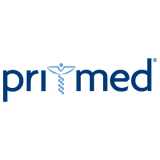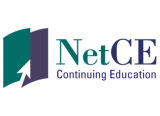P.A.C.T.: Practical Approaches to Comprehensive Treatment of Pain

The nation is facing competing public health issues: the need to treat a large number of Americans with acute and chronic pain vs the crisis of prescription opioid abuse.
Category
Format
- Self-study / Enduring
Credits
- 3.50 AANP Contact Hours
- 1.59 AANP Pharmacology Contact Hours
- 3.50 AMA PRA Category 1 Credit™
Controlled Substances (Opioids) – Safe and Effective Prescribing (Nursing CE) – 3 Hours

This continuing education course is developed to provide the most current information on controlled substances which are federally regulated.
Category
Format
- Self-study / Enduring
Credits
- 3.00 Contact hours
Anemia in the Elderly

Anemia may be common in the elderly patient, but it should not be accepted as normal aging. The scientific evidence suggests that consequences of untreated geriatric anemia are significant. Anemia leads to poorer quality of life and increased morbidity and mortality.
Category
Format
- Self-study / Enduring
Credits
- 2.00 AANP Pharmacology Contact Hours
- 5.00 AMA PRA Category 1 Credit™
- 5.00 ANCC
HSC Health: 2022-24 Remote Patient Monitoring

Chronic diseases, such as heart disease and diabetes, are the leading drivers of our nation's $4.1 trillion annual healthcare costs. Hospitalizations are a large part of the cost.
Category
Format
- Self-study / Enduring
Credits
- 1.00 ACPE Pharmacy
- 1.00 AMA PRA Category 1 Credit™
- 1.00 ANCC
- 1.00 AOA Category 2-B
- 1.00 Association of Social Work Boards (ASWB)
HSC Center for Older Adults: 2023-25 Telemedicine: Addressing Barriers for Special Populations

Telemedicine visits for older adults and younger people with disabilities will differ based on sites such as in the general community, independent living communities, assisted living, memory care communities, and skilled nursing facilities.
Category
Format
- Self-study / Enduring
Credits
- 1.00 ACPE Pharmacy
- 1.00 AMA PRA Category 1 Credit™
- 1.00 ANCC
- 1.00 AOA Category 1-B
- 1.00 Association of Social Work Boards (ASWB)
HSC Center for Older Adults: 2023-25 Addressing Depression in the Context of Age-Friendly Care

Major depressive disorder comes under the "M" of Mentation of the Age-Friendly Health System model. This activity will discuss suicidal epidemiology, assessment, and treatment for Major Depressive Disorder.
Category
- Depression
Format
- Self-study / Enduring
Credits
- 1.00 ACPE Pharmacy
- 1.00 AMA PRA Category 1 Credit™
- 1.00 ANCC
- 1.00 AOA Category 2-B
- 1.00 Association of Social Work Boards (ASWB)
Diabesity: Confronting the Dual Epidemic of Diabetes and Obesity

This session will delve into the intersection of obesity and type 2 diabetes. Learners will explore strategies for glycemic and weight management, cardiorenal protection, and cardiovascular risk mitigation, with an emphasis on the latest guidelines for managing type 2 diabetes and providing holi
Category
- Diabetes Mellitus (DM)
- Weight Management
Format
- Self-study / Enduring
Credits
- 1.00 AANP Contact Hours
- 0.25 AANP Pharmacology Contact Hours
- 1.00 AMA PRA Category 1 Credit™
Depression and Suicide

Depression is a common, debilitating mood disorder. Depression is highly prevalent in medically ill populations, and many persons with depression are either unaware they need professional help or are reluctant to seek it.
Category
- Depression
Format
- Self-study / Enduring
Credits
- 2.00 AANP Pharmacology Contact Hours
- 15.00 AMA PRA Category 1 Credit™
- 15.00 ANCC
- 15.00 Association of Social Work Boards (ASWB)
A 57-Year-Old Man with T2DM, Obesity, Hypertension, CKD, and a Family History of ASCVD

Through this patient case, you’ll gain valuable knowledge on how to avoid therapeutic inertia when treating people with type 2 diabetes mellitus (T2DM) and comorbid conditions. Come away with strategies for creating treatment plans that fully consider your patients’ needs.
Category
- Diabetes Mellitus (DM)
- Hypertension
Format
- Self-study / Enduring
Credits
- 0.45 AANP Contact Hours
- 0.50 AMA PRA Category 1 Credit™
Bridging the Gap: Emotional and Cultural Intelligence in Clinical Practice

The most productive companies in the world stress the importance of both emotional and cultural intelligence in their leaders. We will look at applying these principles to patient care as a way to improve adherence, quality outcomes, and clinician success. The key is self-awareness.
Category
- Cultural Competency
Format
- Self-study / Enduring
Credits
- 1.00 AANP Contact Hours
- 1.00 AMA PRA Category 1 Credit™

 Facebook
Facebook Twitter
Twitter LinkedIn
LinkedIn Forward
Forward